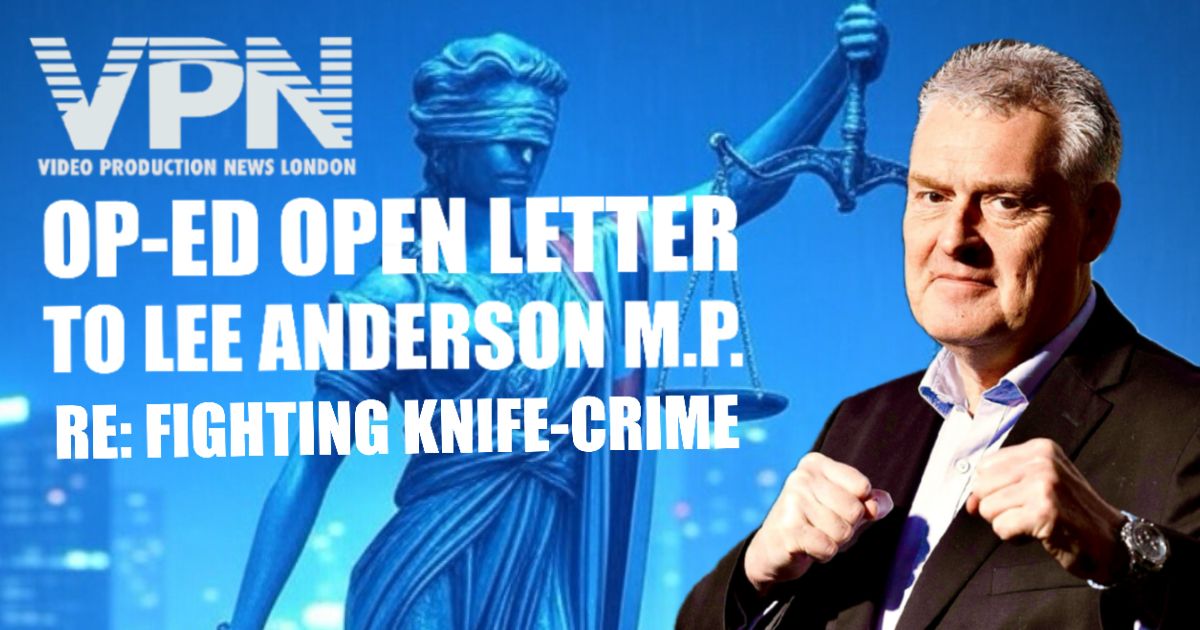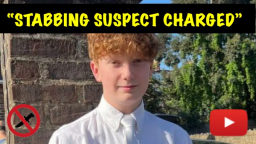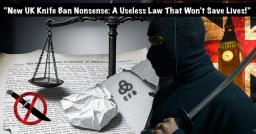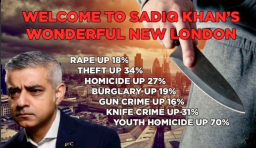🔴 KNIFE CRIME UK - OPEN LETTER & OP-ED TO LEE ANDERSON MP
Knife crime remains one of the most urgent challenges facing the UK today, yet behind the headlines lies a far more complex picture of ineffective bans, under-enforced laws and an overstretched prison system. This in-depth open letter reveals the hard truths.
Dear Lee Anderson MP,
I write this as an open letter OP-ED in response to your recent announcement of securing a Westminster Hall debate on knife crime for 15 October. Securing parliamentary time for such a vital issue is an achievement in itself, and you deserve credit for ensuring that this crisis is given the serious national attention it demands.
The two central questions you raised in your announcement cut directly to the heart of this debate. They are the very issues our newsroom has been investigating in depth for over two years, during which we have published a comprehensive body of analysis on the causes, failures, and possible solutions to the United Kingdom’s knife crime epidemic, (Our links to these articles are provided at bottom of this editorial).
Rather than asking you to seek out that archive, we intend within this letter to distil and set out the key findings of that work, so you may see at once the depth of research and perspective we can bring to this discussion.
Our aim is not to lecture, but to contribute. We fully recognise the urgency of your intervention and believe that by sharing what we have uncovered, we can strengthen the case for effective action. With that in mind, I hope this letter will serve both as a constructive response to your questions and as a demonstration of why our voice could add value to your forthcoming debate.
Much as one fully accepts the logic of your question about mandatory custodial sentences for carrying a knife, the law already contains what is close to a “two-strikes” rule. Under Section 315 of the Sentencing Act 2020 and related provisions, an adult convicted of carrying a bladed article or offensive weapon in public for a second offence must receive a minimum term of six months’ imprisonment, unless there are exceptional circumstances.
That statutory provision demonstrates that the principle you propose is not new; it enjoys Parliamentary approval and has been in force for some years. Yet in practice this does not seem to deliver the deterrent effect intended. Video Production News has observed, in court after court, cases in which individuals who should, under this “second-strike” legal standard, receive custody instead receive community orders, suspended sentences, or lighter sanctions—sometimes repeatedly, despite multiple convictions (two, three, four, even five).
The reason is not primarily a failure of law enforcement: many offenders are being caught, charged, and convicted. The issue lies elsewhere. Insufficient prison capacity renders many courts reluctant or unable to impose custodial sentences that law demands. In many instances judges or prosecutors argue that there is no realistic place to send a prisoner—or that the cost, delay, or resources make non-custodial penalties seem more practicable. Thus the legal minimum for repeat offences is being routinely bypassed or diluted in effect.
Given that reality, the question of whether new, stricter mandatory custodial sentences would work is somewhat moot unless the underlying bottlenecks are addressed. What use is an iron-clad law if the system cannot enforce it? What chance has a policy of immediate custodial sentence if there are no available prison places and if courts lack will (or resources) to impose them?
If one seeks solutions, one might begin with near-term reforms: reviewing the number of foreign nationals in prison who might be eligible for deportation; expanding non-custodial alternatives such as home containment or electronic monitoring to take pressure off the system; increasing investment in prison infrastructure. Without those, even the best-written mandatory sentence laws risk becoming symbolic rather than functional.
On your second question, whether stop and search should be increased, the answer is unequivocally yes. The United Kingdom is facing a knife crime epidemic and it would be disingenuous to deny that stop and search, when conducted lawfully and with proper oversight, has already proven its worth in removing blades from the streets and in deterring some offenders from carrying in the first place.
Yet the matter is more nuanced than a simple increase in numbers. If stop and search is deployed as the singular solution, we risk ignoring additional, highly effective and cost-efficient measures that could transform outcomes when used alongside it.
Cambridge University’s predictive knife crime software is an obvious starting point. The programme identifies the areas and times most likely to see knife-related offences, allowing for targeted policing in those hotspots. If forces used this data to guide patrols and resource allocation, they would be able to focus their attention where it is needed most, rather than relying on broad sweeps that consume time and attract criticism for inefficiency.
Equipping every officer engaged in such operations with portable hand-held knife wands would multiply the impact. These devices, already proven in school and event settings, are non-intrusive, require minimal paperwork, and are far more time-efficient than a traditional stop and search.
If a wand alerts to a weapon, the process naturally escalates into a full search, but the tool allows far greater numbers of individuals to be screened in the same period. More importantly, it provides a visible deterrent: the knowledge that officers are actively sweeping with wands in transport hubs, high streets, and estates makes carrying a blade less attractive.
Combined, predictive software, targeted policing, and widespread use of knife wands would create a proactive system capable of preventing and detecting offending on a scale traditional stop and search cannot match. The flaw, however, lies not in the technology but in capacity.
If deployed effectively, this strategy would inevitably result in many more offenders being caught, charged, and prosecuted. That in turn raises the same fundamental issue discussed in relation to mandatory custodial sentences: the absence of prison places and limited capacity in the magistrates’ courts to process the influx. Without expanding both prison and court resources, any surge in enforcement will grind to the same halt we already see, with offenders evading custody despite multiple convictions.
The conclusion is unavoidable. While smarter stop and search, predictive analytics, and knife wands together form a proven and highly efficient weapon in the fight against knife crime, they cannot achieve their potential unless there are sufficient prison places to accommodate the offenders they will inevitably expose. Without that foundation, the most effective policing strategy risks becoming yet another well-intentioned but unworkable policy.
Lee, before moving further it is necessary to make plain that this section does not seek to answer one of your direct questions but to demonstrate, with technical precision, why knife sale bans are a complete irrelevance in the fight against knife crime.
It is already unlawful under section 139 of the Criminal Justice Act 1988 to carry any knife in a public place save for a small folding pocketknife with a blade of less than three inches that does not lock. The carrying of any bladed article without good reason has been illegal for decades. In parallel, the Prevention of Crime Act 1953 criminalises possession of an offensive weapon in public. These two statutes together already criminalise what the public imagines is being newly banned whenever a fresh announcement is made.
That is the essential truth: so-called knife bans never ban carrying knives in public — that has long been illegal — but only ban the sale of knives meeting narrowly defined cosmetic criteria. The latest “zombie knife” and machete restrictions illustrate this perfectly. The statutory wording is confined to blades with certain decorative or exaggerated features such as multiple holes, multiple points, or serrated edges of more than one inch. Remove those details and the same machete can be legally sold the next day. Retailers and manufacturers already do precisely that. The British Machete Company and other suppliers openly and lawfully continue to market large blades and machetes that fall outside the banned description.
This makes the legislative reality plain: you cannot legislate away large kitchen knives, chef’s knives, butcher’s scimitars, chisels or screwdrivers. They are indispensable household and industrial tools. Every household in Britain contains multiple such items.
As the Freedom of Information disclosures and police data confirm, it is precisely these everyday implements that account for the overwhelming majority of knife crime. Kitchen knives, not zombie blades, are the weapon of choice in most fatal stabbings. Criminals do not need theatrical weapons when ordinary utensils are every bit as lethal.
The result is categorical: a ban on the sale of certain blade types does nothing to reduce knife crime. Offenders simply purchase a legal alternative or arm themselves with the knives already present in every kitchen drawer.
The empirical evidence is unambiguous. Despite successive waves of bans, knife crime continues to rise. The conclusion is unavoidable: knife bans have no impact whatsoever on knife crime levels. They are, in effect, political gaslighting — policies designed for optics, reassurance and headlines, not for outcomes.
This is not an opinion but a legal and practical reality. Knife bans cannot stop the possession or use of kitchen knives, which are the real instruments of harm. They cannot prevent offenders from obtaining equally dangerous substitutes. They cannot be enforced in a way that makes any measurable dent in crime statistics.
They will never serve as a deterrent. The only effective deterrent is robust enforcement of existing laws, backed by sentencing that carries certainty and consequence. And that, as you rightly identified in your first question, requires prison places and the judicial will to use them — neither of which exist in sufficient supply today.
For these reasons, knife bans must be recognised for what they are: a distraction. They will never, under any legislative draft or political framing, reduce knife crime. The only path to deterrence lies in enforcement, sentencing, and capacity. Without those, every new ban is nothing more than performance politics.
Lee, further, having already 100% fully demonstrated in technical terms why knife bans cannot and do not work, we must now turn to the two most recent campaigns presented as supposed solutions: the highly publicised measures championed by Sir Keir Starmer and Idris Elba.
These initiatives have been dressed before the public as bold interventions, yet when stripped of their careful presentation they are nothing more than the legislative equivalent of the Emperor’s New Clothes. The public are invited to marvel at solutions that do not exist, while those of us willing to state the truth are treated as the boy in the fable pointing out the obvious — that nothing is there at all.
Take first the so-called “Zombie Machete Ban.” Fronted by Sir Keir Starmer and endorsed by Idris Elba, this measure avoids mentioning that it is a sales ban only, not a ban on carrying such weapons in public, because that has long been prohibited under section 139 of the Criminal Justice Act 1988. Its very wording creates the impression that both the carrying and the general sale of machetes are outlawed.
Neither is true. What is in fact banned are only blades meeting a small set of cosmetic characteristics: multiple holes, multiple points, or serrated edges beyond one inch. Remove those details and the same machete can be sold legally. That is why suppliers continue to advertise large machetes openly in the UK. As we have documented in detail at Video Production News, this ban is an exercise in optics, not outcomes.
The second measure, styled the “Ninja Sword Ban,” is equally deceptive. Again championed by Starmer and Elba, it relies on a wholly artificial statutory definition of what a ninja sword is supposed to be. A sword of certain lengths with a point of a specified angle falls within the ban, but adjust the length by a centimetre or the angle by a degree and the same weapon is entirely lawful.
The result, as our reporting has shown, is that virtually identical blades remain widely available. Yet the public have been led to believe, through the deliberate wording used by Starmer and Elba, that ninja swords have been eliminated from sale in Britain.
In both cases, the carefully chosen names — “Zombie Machete Ban” and “Ninja Sword Ban” — were designed to mislead. They rely on the public assuming that such titles mean a prohibition on carrying or selling the classes of weapons described. In truth, the carrying was already long illegal, and the sales are still permitted so long as technical specifications are avoided. Far from eliminating these weapons, the legislation merely trims around the edges in a way that allows manufacturers to adjust designs with ease.
This is not a question of well-meaning initiatives failing in execution. It is legislation crafted for optics. Sir Keir Starmer and Idris Elba have knowingly fronted measures that they must be fully aware will have no material impact on knife crime.
Their campaigns have been presented as solutions, but in reality they are diversions — political theatre designed to convince the public that decisive action has been taken, when in fact nothing meaningful has changed. Knife crime continues to rise.
The Office for National Statistics recorded more than 49,000 knife offences in England and Wales in the last year alone, an increase on the year before, showing beyond doubt that these bans have achieved nothing.
The truth, unpalatable as it may be, is that Starmer and Elba have deceived the British public. By using deliberately misleading titles, they have created the illusion of progress while leaving the problem entirely untouched.
The only effect has been to generate headlines and reassure voters. In the real world, in the cold light of day, these bans cannot and will not reduce knife crime in any measurable way. To state otherwise is to continue the pretence that the Emperor’s clothes exist. At Video Production News we will not join in that pretence, and our investigative reporting will continue to expose these failures for what they are.
CONCLUSION:
Lee, the reality that must now be faced is that knife crime in Britain is at record levels and continues to rise despite successive governments introducing ban after ban on certain classes of bladed articles. The latest Office for National Statistics figures confirm more than 49,000 knife offences recorded in the past year, an increase on the previous 12 months. This alone demonstrates the futility of the legislative path that has been pursued. Prohibiting the sale of knives with particular design features has not altered the fundamental truth that criminals determined to carry a blade will do so regardless. They turn to household kitchen knives, workshop tools or slightly modified commercial blades, all of which remain legally available and equally lethal.
To pretend that knife crime can be addressed through ever more intricate definitions of what is and is not a zombie machete or a ninja sword is to ignore both the law and common sense. Carrying any bladed article in a public place without lawful authority or good reason has long been a criminal offence. Sales bans on cosmetic features do not change that. They do not remove dangerous knives from circulation. They do not prevent a youth from reaching into a drawer and taking a common kitchen knife onto the streets. They do not alter the fact that most knife crime is committed not with sensationalised weapons but with everyday implements.
This is why the current strategy is, in truth, no strategy at all. It amounts to political theatre, legislation designed for headlines rather than outcomes. The public have been led to believe that action is being taken, but the data tells a different story. Knife crime continues to increase because there is no visible deterrent, no certainty of robust enforcement and sentencing, and no adequate prison capacity to ensure that those who break the law are held to account. Without this, the cycle continues unchecked.
The difficult discussion now demanded is not whether another cosmetic ban should be drafted but whether the justice system is prepared to deliver what is necessary to deter knife crime. That means facing uncomfortable questions about sentencing, enforcement and resources.
It means acknowledging that without additional prison places and without a judiciary empowered and expected to impose custodial sentences, no measure will be credible. It means recognising that only a clear, unavoidable deterrent will reduce the number of young men carrying knives onto Britain’s streets.
At Video Production News we have documented these realities across an extensive body of work, much of which we have provided for reference here. We have followed the debate through legislation, courtrooms and case law. We have analysed the data, tracked the trends and interrogated the official responses.
The evidence is now unambiguous. Knife bans are ineffective. Knife crime is rising. The current strategy is failing. If there is to be meaningful progress, it will only come from policies rooted in enforcement, deterrence and the practical realities of the law, not in rhetorical flourishes designed for public reassurance.
Lee, in light of our continuing work in this field, our research, and the catalogue of articles we have already produced, we would be deeply honoured if we might be invited to your forthcoming debate on crime on 15 October.
Whether to report on the proceedings or, should you feel it appropriate, to contribute to the discussion, we would value the opportunity to bring our analysis and insight to the table. The challenges are grave, the realities stark, and the solutions will only be found if we are willing to speak plainly about the facts that too many prefer to avoid.
Lee, Video Production News, would truly welcome the chance to assist in cutting through the noise and placing the hard legal and factual realities on record, and we respectfully ask that you consider extending us an invitation to your debate so these truths cannot be ignored any longer, we believe the only workable solution to solving the UK's Knife Crime epidemic is make our aim "BLUNT TRUTHS & SHARP JUSTICE"!
By Ben Freeman with inclusion
From John Lamb
EDITORIAL NOTE - Link to our existing historic articles on Knife-Crime:
https://www.vpnldn.co.uk/post/new-uk-knife-ban-nonsense-another-useless-law-that-won-t-save-lives
https://www.vpnldn.co.uk/post/families-blast-khan-london-s-knife-crime-nightmare
https://www.vpnldn.co.uk/post/unveiling-london-s-crisis-the-alarming-surge-of-teen-knife-murders
https://www.vpnldn.co.uk/post/london-s-cry-for-safety-sadiq-khan-s-failed-battle-against-knife-crime
https://www.vpnldn.co.uk/post/birmingham-s-growing-menace-a-mirror-of-london-s-knife-crime-epidemic








